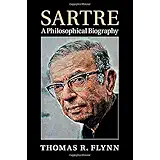 by Philip Glass (Get the Book)
by Philip Glass (Get the Book)No matter your opinion of Glass’ music, you will like Glass the man. In a straightforward yet often moving voice, he details his early years at the University of Chicago; his move to New York and Juilliard (despite his mother’s warning that, as a musician, he would be living in hotels and traveling for the rest of his life); his studies in Paris and, later, in India; his unbending dedication to being an artist; and, in large part, the men and women from all walks of life who would influence him as he developed “the habit of attention” necessary to compose in genres ranging from high-school band music to symphonies, quartets, concertos, and such operas as Einstein on the Beach and Satyagraha. Glass would support his family working odd jobs part-time for years, finally becoming a full-time composer at age 41. Even so, he has lived the life, immersing himself in theater, art, literature, and music, and he relates here how the arts changed over time, the cultural loss AIDS wrought, and the evolution of his sometimes disparaged minimalist, tonalist compositions (as he posits, “I’m a theater composer”). Aspiring musicians and artists will learn much from Glass, as will general readers, musical or not, who will discover an artistic life exceptionally well lived. --Booklist





